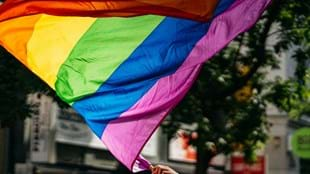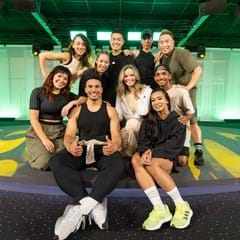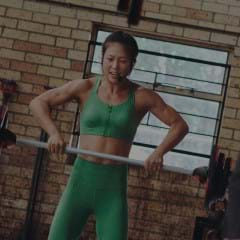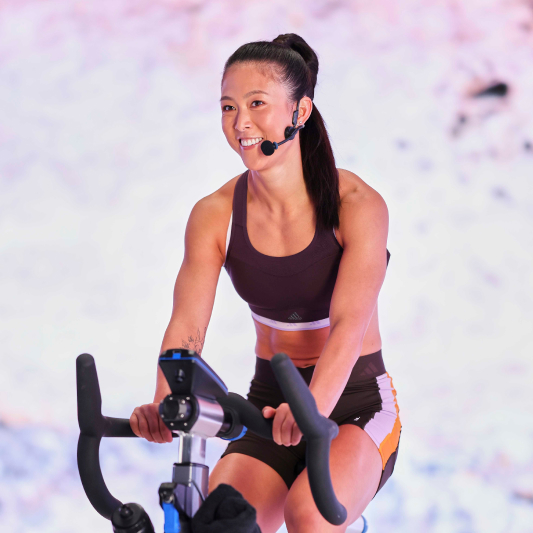
Amy Lu
"I came to New Zealand from China with my mum when I was five. It was just me and her. I had a very classic immigrant Chinese upbringing – there's a certain image and trajectory of your life that parents envisage for you. If you're a girl, you're expected to be nice and calm and graceful and elegant and feminine. You meet a nice boy, you get married, have children, all that stuff. I remember always trying to fit into the mold that my mom had for me. Thinking back, I suspect her biggest fear was that I would be gay. I was into hip-hop so she pushed me into ballet. I wanted to learn guitar, but that was too "boyish" so she pushed me into playing the flute. Even my name was very feminine in terms of the Chinese characters!
Growing up in New Zealand, gay culture wasn't as open as it is now. I never really explored my sexuality that much. I kind of knew I should like boys, but I was never sure I did. And I guess I had some internal kind of homophobia around myself as well. I had a couple of secret relationships with girls in high school and university.
After I graduated from medical school, I moved to Whangarei, which allowed me to re-introduce myself to the world. I joined the local community gym and they invited me to become an Instructor. They sent me along to Initial Training and that's where I met Carrie Kepple, who was one of the Trainers. If you know Carrie, you'll know she's petite, feminine and quite the pocket rocket! You'd never think she's gay! I vividly remember when she introduced herself and said: “I'm from America, but, you know, my wife's from New Zealand, so I'm going to be here forever.” I was only half paying attention, but when she said that I was stunned. I thought: “How could you just announce that so casually and so easily to so many people?” I'd been in a secret relationship for a few years, so that was like, what the hell?! It blew my mind!
After module, I began teaching at Les Mills clubs in Auckland. That first six months felt like a whole new world. At Les Mills, everyone was just so free. Everyone was so themselves. There was a very strong LGBTTQIA+ culture. And the thing is when you’re not "out", you always feel like you're putting on a facade. You're always self-conscious about everything you do and question yourself constantly: “Could this thing I said make this person think I'm gay?"; "If I do this, are they going to think I'm gay?". For the first time in my life, I felt accepted and encouraged to live my truth.
If it wasn't for group fitness, I'm really not sure I’d feel as content with myself as I do now. I don't think I would have ever felt free to express myself, to be who I've always thought I wanted to be. I love the person I am now. I love the person I am when I teach."
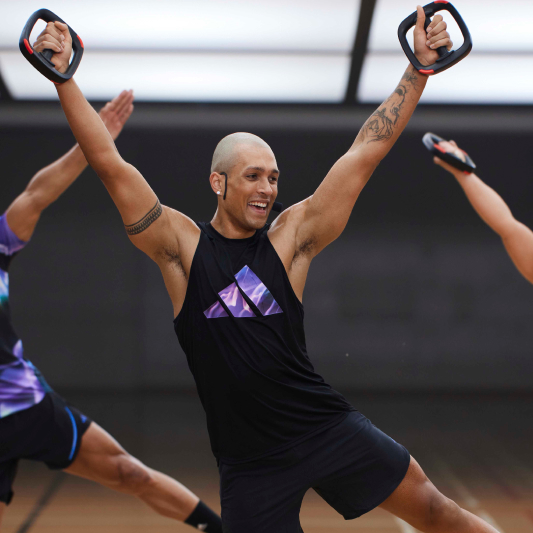
Otto Prodan
"I joined the gym when I was 15 in a very, very vulnerable time of my life. I went from being overweight to very underweight. Looking back now, I think I had an eating disorder. I was also having problems at home because my dad had found out that I was gay. I didn't want to be home, and the gym was my happy place.
When I went to my first ever group training class, BODYATTACK™, the Instructor made me feel seen, made me feel like I was okay. That I belonged. I didn't feel like I belonged in the school. I didn't feel like I belonged at home. I wasn't feeling good in my body. And I was being told that what I was doing was wrong. But in the gym, in that class, it didn't matter and the Instructor didn't care. I was being encouraged to be myself, to be as flamboyant as I liked, to wave my hands in the air and enjoy myself. I felt like I could express myself in a way I couldn’t in other parts of my life.
Through my Instructor journey, I’ve grown as a human. When I first moved to New Zealand I was told: “Just be yourself”. Like that’s so easy. But it can be a hard thing to do when I’d always been told “Don't act this way. Don't say stuff this way. Don't sound this way. Don't move this way.”
When I teach my classes, I want people to have that same feeling that the BODYATTACK Instructor gave me. It doesn't matter who you are. It doesn't matter your fitness level. It doesn't matter what's going on at home. You can come here, have a good time and feel good in your body. No judgment."
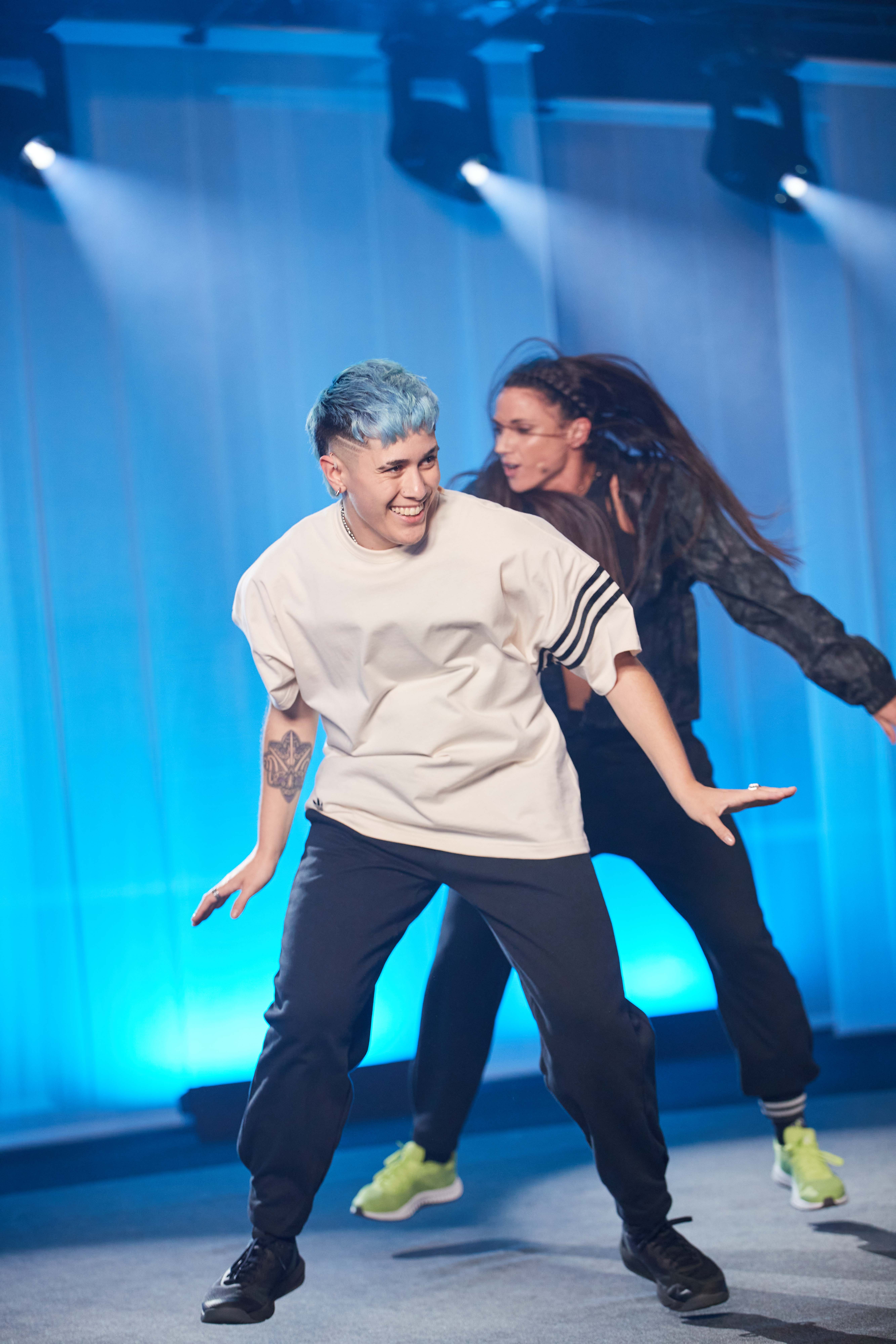
Meno Thomas
"I’ve always been a loud person, but I could get quite shy when it came to meeting new people. I didn’t really know what to say. Teaching group fitness from such a young age – I started at 15 – really helped my confidence, especially going through my journey with transitioning into being transgender. It’s been so helpful, not only for teaching, but also in helping me to stand for who I am today. It definitely helped me to find out who I really am.
I came out at a very young age. I always knew I was different from my twin sister because I was quite tomboyish, growing up. And I was like, why? Why am I so different from my sister? She was a very girly girl, quite into makeup, dressing up and all that stuff. And I was too, but I always admired my father – the way that he looked and the way that he dressed.
I remember being in kindergarten and just not feeling comfortable wearing a dress, crying because I wanted to get out of it. My sister was like: “Get over it, you look pretty.” But I didn’t want to look pretty.
I did some self-education around the age of 12 and I asked my Mum: “What does this mean?” We had a really great conversation about it and then I came out a couple of years later. Once I came out and told people who I actually was, everything started to make sense. I understood why I felt so different to my friends who are girls, and why I wanted to hang out with boys so much. When I found out what transgender meant, it made absolute sense why I’d been feeling the way I had since the age of about three.
The more I started to accept who I am, the more comfortable I felt with myself. I’ve had a pretty cool journey, and I’m still going through an incredible journey. I’m glad if I can bring some light to those who might be going through similar times, who might not have the support that I do.
Before I came out, I always felt uncomfortable, unsure. I wouldn’t say it was tough, but it was confusing. When we found a name for it, it was like we hit the nail on the head. It was like, ‘This makes absolute sense.’
I have empathy for the people who might want to say something nasty about me – like I’m not good enough or not strong enough. Maybe I’m not tall enough, or masculine enough. But how I look at it is: ‘You know what, I’m here to give me. And if you don’t accept that, that’s okay. But I’m going to continue to give me. And if you decide you don’t want to be on this ride with me, that’s okay, I’ll just drop you off at the next station.’"



